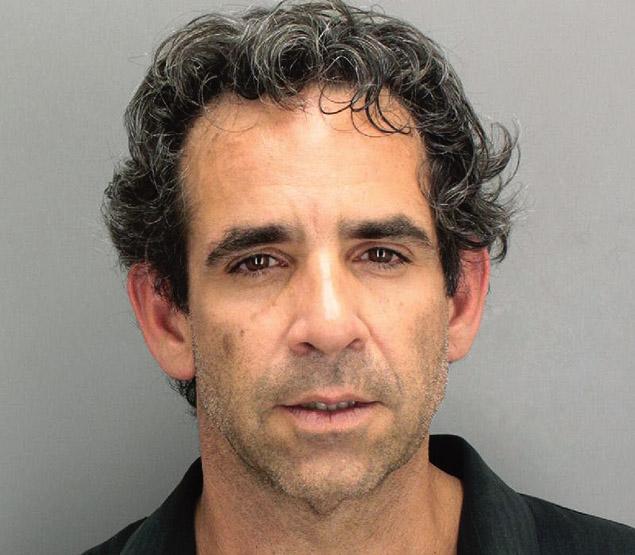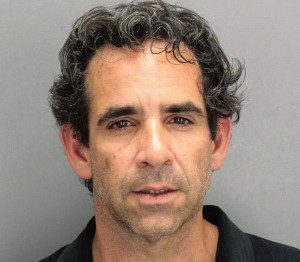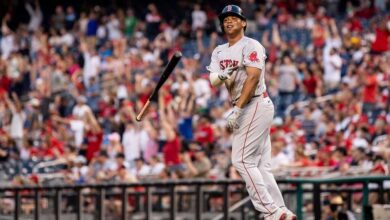

Over the past week, much has been made of the impending release of a list of players who will face suspension in the wake of Tony Bosch deciding to cut a deal with Major League Baseball. But upon further examination, this list and its release are not as meaningful as people seem to think.
Aside from the minimal element of surprise, there’s the matter of the league’s motivation in breaking this story. Major League Baseball is, in this instance, comparable to other institutions that gladly look the other way as long as its numbers look good, only to selectively throw people under the bus in order to cast the opposite impression.
Years ago, when Bud Selig decided he was going to “get tough” on PEDs, he targeted players who people, outside of their local fan bases, would have been fine to see go down as fall guys. Barry Bonds, regardless of what you make of his greatness, was by most accounts a cantankerous, dismissive jerk; Alex Rodriguez had already acquired the reputation of being a stat-stacking prima donna who disappeared in the clutch (this argument was over-applied, but perception is often seen as reality); and Roger Clemens was a brash headhunter who generally endeared himself to few. As for Mark McGwire, who was briefly a media and baseball darling, he was also the “Bash Brother” who became famous along with Jose Canseco, who opened the floodgates with his tell-all expose (clearly of questionable motive, but also reasonably taken as mostly accurate at this point). With the witch-hunt approach of the past year or two, Major League Baseball seems to be a great example of an organization trying to distance itself by way of a few high-profile condemnations rather than self-regulate with a systematic approach.
Where was Bud Selig’s outrage when power numbers first began to look inexplicably crazy? Or when the 95 mph fastball suddenly seemed a bit too ubiquitous (I’m planning to address the matter of pitchers & PEDs in a future piece)? Fans were packing the stands, offense was through the roof, ballparks were shrinking (no small factor in the ballooning numbers) and questions were quickly dismissed when the PED problem could have been addressed at an earlier stage. As I’ve noted previously, if baseball was serious about eliminating its culture of cheating, greenies wouldn’t have been handed out like candy until only a generation ago.
Speaking of baseball’s culture of cheating: Not long ago, an ex minor-leaguer wrote about the prevalence of various types of cheating in baseball, not only involving PEDs but doctoring baseballs and the like. This is no surprise. If you’re on the cusp of the big show, but lacking an “out pitch” or maybe a little sore in the arm or tight in the knees, and practically everyone seems desperate to gain any sort of advantage, the temptation to scuff the ball and/or use a performance enhancer must be astounding (again, counters the excessive focus on hitters as part of the rule-bending problem). It would, frankly, be preposterous if baseball declared the minor leagues clean. PEDs are just an addition to the long list of time-honored methods, from sign stealing to sandpaper to excessive pine tar to bats full of superballs. Releasing 20 names seems more like a token gesture than a real attempt to address cheating at a grassroots level.
Last but not least, there’s the matter of how the league goes about classifying performance enhancers, in its effort to catch up with (or appear to catch up with) the performance enhancement issue. As I see it, there are two major categories of substances which should be banned: those that are exceedingly dangerous (such that we wouldn’t want our youth and/or future Major Leaguers to mimic their usage), and those which are illegal. Instead of spending time, energy and resources going after guys who might have accidentally taken something they bought at GNC, or who might fail a test because of an antihistamine or cold medicine, Major League Baseball should focus more specifically on dangerous steroids and other dangerous, illegal and unsavory drugs. The fact is, if a guy takes something that makes him build muscle faster, and it isn’t dangerous or against the law, then let him. It won’t make them a better hitter; it won’t give them pitch recognition; it won’t teach him to hit the catcher’s glove or throw a curveball with greater conviction in a full count. And if everyone has access to it, then so be it — it won’t throw off the game’s competitive balance, and we aren’t poisoning the youth.
Major League Baseball should focus on things like competitive balance and integrity, making the game safe and healthy for those who might emulate its players, and cleaning up potential disasters like beanball wars and game-changing terrible calls. To act as if a major step to addressing the PED scandal would be to trot out 20 names and drop huge suspensions on players who haven’t failed drug tests — all on the word, and assorted jottings and liner notes, of Tony Bosch — is a self-serving, disingenuous shortcut and an insult to the intelligence of critical minds. It also won’t change very much.





